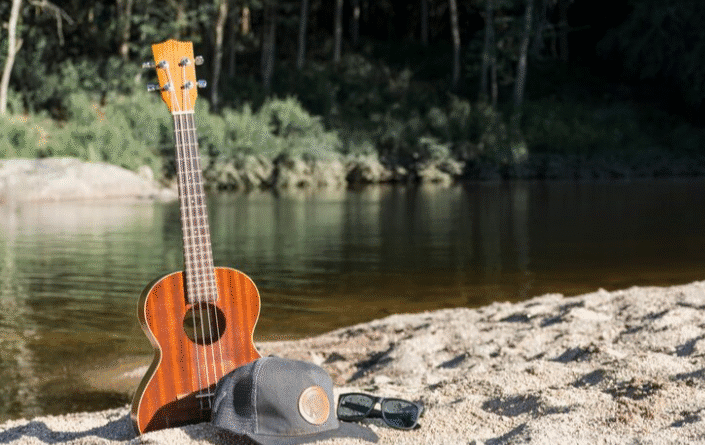Ukulele History: The Fascinating Story of the Little Guitar with a Big Heart
Introduction
The ukulele is more than just a small four-string instrument – it’s a cultural icon with a story that spans oceans, centuries, and music traditions. Today, the ukulele is loved by beginners, professional musicians, and hobbyists alike because of its joyful sound and approachable design. But behind the cheerful strumming lies a fascinating journey of travel, innovation, and global influence.
In this article, we’ll take you on a complete journey through ukulele history. From its Portuguese roots to its Hawaiian rebirth, and from golden Hollywood days to modern-day popularity, you’ll learn how this tiny guitar-shaped instrument captured hearts worldwide. Whether you’re a music lover, a history buff, or a curious beginner, this story will leave you strumming with inspiration.
The Origins of the Ukulele
From Portugal to Hawaii
The story of the ukulele begins in the 19th century with Portuguese immigrants. In 1879, three cabinet makers – Manuel Nunes, Augusto Dias, and José do Espírito Santo – arrived in Hawaii from Madeira, bringing with them a small string instrument called the machete de braga (also known as cavaquinho).
The Hawaiians quickly fell in love with this cheerful, portable instrument. They modified its design slightly, giving it a new voice and identity. The locals called it “ukulele,” which translates to “jumping flea” – a playful name inspired by the lively finger movements of players.
Royal Support and Popularity in Hawaii
Hawaiian royalty, especially King David Kalākaua, was instrumental in making the ukulele a central part of Hawaiian culture. King Kalākaua promoted Hawaiian music and dance, often featuring the ukulele at royal gatherings. This royal endorsement helped the instrument spread across the islands and become part of Hawaii’s identity.
Ukulele History in the Early 20th Century
The Panama-Pacific International Exposition (1915)
The big break for the ukulele came in 1915 at the Panama-Pacific International Exposition in San Francisco. Hawaiian music, including the ukulele, was showcased, and the mainland U.S. was instantly charmed. The ukulele quickly became a symbol of exotic, sunny Hawaii.
Roaring Twenties Popularity
In the 1920s, the ukulele exploded in popularity. Affordable, fun to play, and portable, it became the instrument of choice for college students, jazz musicians, and casual performers. Sheet music publishers even began including ukulele chords, making it accessible for everyone.
Hollywood and the Golden Era
During the 1930s to 1950s, Hollywood films played a huge role in keeping the ukulele in the spotlight. Stars like Arthur Godfrey popularized the instrument through television shows, while Hawaiian-themed movies showcased the ukulele as the sound of paradise.
Elvis Presley and the Ukulele
The instrument reached another peak in the 1960s with films like Blue Hawaii, starring Elvis Presley. These performances linked the ukulele forever with island culture, romance, and fun.
The Decline and Revival
Mid-20th Century Decline
As rock ‘n’ roll and electric guitars took over, the ukulele experienced a decline in mainstream popularity. For several decades, it was seen as a novelty or beginner’s toy.
The Revival in the 1990s and Beyond
But the ukulele’s story didn’t end there. In the 1990s, Hawaiian musician Israel Kamakawiwo‘ole (IZ) gave the ukulele new life with his iconic rendition of “Somewhere Over the Rainbow/What a Wonderful World.” His soulful playing showed the instrument’s emotional depth and range.
In the 2000s and 2010s, social media platforms like YouTube helped the ukulele boom again. Musicians such as Jake Shimabukuro wowed audiences worldwide with virtuosic performances, proving the ukulele is not just for beginners but also capable of extraordinary artistry.
Ukulele History Meets Modern Times
Today, the ukulele is celebrated worldwide. Music classrooms, professional stages, and even therapy sessions use the instrument because of its warm sound and ease of learning. Global festivals, like the Ukulele Festival of Hawaii, continue to celebrate its legacy.
The instrument has also diversified in design, with soprano, concert, tenor, and baritone ukuleles offering unique tones. Brands worldwide produce affordable and professional models, keeping the instrument accessible for everyone.
Why the Ukulele’s History Matters
The ukulele history is not just about an instrument – it’s about cultural exchange, innovation, and joy. From Portuguese craftsmen to Hawaiian royalty, from Hollywood stars to YouTube sensations, the ukulele has always connected people through music. Its journey proves that even the smallest instrument can make the biggest impact on global culture.
Frequently Asked Questions (FAQs)
1. Where did the ukulele originate?
The ukulele originated in Hawaii in the late 19th century but was adapted from the Portuguese machete de braga brought by immigrants from Madeira.
2. Why is it called a “ukulele”?
The name “ukulele” means “jumping flea” in Hawaiian, inspired by the quick finger movements of players.
3. Who made the first ukulele?
The first Hawaiian ukuleles were crafted by Portuguese immigrants Manuel Nunes, Augusto Dias, and José do Espírito Santo in the late 1800s.
4. When did the ukulele become popular worldwide?
The ukulele gained worldwide fame after the 1915 Panama-Pacific Exposition and later through Hollywood films and music stars.
5. Is the ukulele still popular today?
Yes! The ukulele has enjoyed a major revival since the 1990s and is now one of the most popular instruments worldwide, especially among beginners and online creators.
Conclusion
The story of the ukulele is truly inspiring. From humble Portuguese origins to its rebirth in Hawaii, and from global stardom to modern-day revival, the ukulele has traveled across cultures and generations. Its history is filled with joy, resilience, and the power of music to bring people together.
If you’ve ever strummed a ukulele, you’ve already become part of this living history. The cheerful sound that once filled Hawaiian royal courts and Hollywood films now fills classrooms, festivals, and living rooms around the world. The ukulele history reminds us that music is universal, timeless, and always evolving.
So next time you pick up this little four-string wonder, remember—you’re holding a piece of history that continues to jump across hearts like a “jumping flea.”
